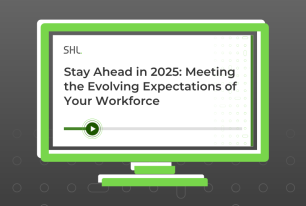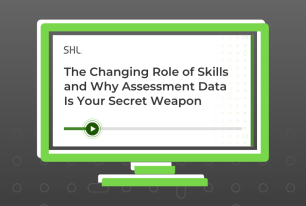Black Lives Matter: Creating a Safe Space to Share Personal Experiences
Understanding the many manifestations of racism is the first step to dismantling it. We all must listen, learn, and contribute to positive change.
Share
On Monday, May 26th, 2020 – the murder of George Floyd sparked global support for the Black Lives Matter movement with a renewed desire to address the systemic oppression of Black and Indigenous people in the United States and around the world.
SHL quickly acknowledged the deep and personal impact of these events on colleagues. This led to the roll-out of a series of Listening Circles with facilitation from Dr. Jonathan Ashlong-Lampety – a globally recognized authority on Diversity and Inclusion in the workplace. These conversations gave the opportunity for all employees from across the globe to share their thoughts, feelings, and experiences in direct relation to the events surrounding the murder of George Floyd and the Black Lives Matter movement. Ensuring an environment of Psychological Safety where individuals could share their experiences without fear of negative consequences to self-image, status or career was key for the success of these sessions.
Listening to my friends and colleagues from across the globe describe their paralyzing fear and sense of helplessness and hopelessness as a result of these events was a truly humanizing experience.
There were many themes that were addressed during the Listening Circles. Here I will outline three. Firstly, there was a feeling that “..for a long time, this has felt like a taboo subject to raise [racism]” along with disappointment that it has taken such an awful event to bring the Diversity agenda to the forefront “..it’s good that this has started now [open conversations about Diversity and Inclusion] but it’s just frustrating that it could have started earlier”.
Secondly, there was a theme around the ability to be our authentic selves with statements such as “[I feel like we have to] let the true parts of ourselves die in a corner” and comments around “shrinking” and “adjusting” to fit in. Some felt that recent events had allowed for introspection “…this has caused me to be vulnerable … I realized that for a long time I had been screaming on the inside but being macho on the outside”.
Ensuring an environment of Psychological Safety where individuals could share their experiences without fear of negative consequences was key for the success of these sessions.
The third key feeling that was shared was around the need to be comfortable with making people feel uncomfortable. Racism is an emotive topic; we must be ok with that because otherwise “the silence is deafening”. Not only do we have to share and speak up, but we all must take ownership to educate ourselves and own the change. Nobody can teach anybody how not to be racist, this is a journey we must all embark on for the greater good.
SHL is committed to ensuring that this is the start of an on-going pursuit to be a more diverse and inclusive workforce. This is summarized in our Diversity and Inclusion mission statement:
At SHL we seek out and support the variety of human identity in our workforce to mirror the clients we serve. We are not all the same and great minds don’t all think alike. We are equally valuable and able to contribute. We respect, appreciate, and leverage our differences to drive fearless innovation and positive impact for our clients.
Furthermore, as a direct outcome of the listening circles the Diversity and Inclusion team took the feedback gathered and defined four key pillars for action. This was initially presented to Andy Bradshaw, SHL’s CEO, and has now been shared with the whole Senior Leadership Team with further commitments being defined around the below four pillars:
- Goals and Policies – Develop our company to engage and embrace differences and diversity and to address discrimination with a meaningful change to our structure and leadership.
- Education – Our teams, starting with Executive Leadership, will engage in listening and learning conversations facilitated by leading DEI experts, to discover the ways in which we contribute to racism, and to commit to changing our behaviors, actions, and inactions.
- Structural Support – Amplify the voices of people of color by giving them a platform to openly discuss the reality of racism, listen to the ways in which we must change, and stand in solidarity as we actively choose to be anti-racist.
- Communication – Create a sustained ongoing dialogue and messaging that resonates throughout the organization on the importance of this movement.
The support from senior leadership has been positive but for sustained change, each one of us has a part to play. We all must understand why diversity is imperative to our success, what has caused the status quo and how we can dismantle it. Here are some resources that might help:
- LinkedIn Learning modules on Diversity, Inclusion, and Belonging for All
- Resources from Monzo – the forward-thinking bank who are leading the way in Diversity and Inclusion:
Finally, contact us to learn more about how SHL can help you grow a conscious anti-racist culture.









